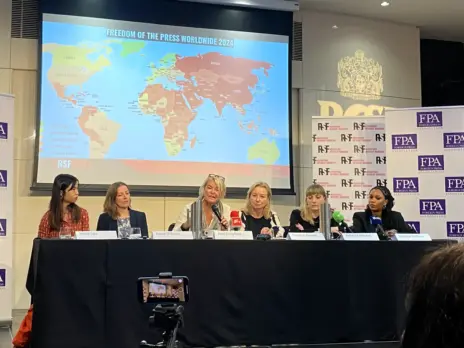
The Government has begun its fight against “alternative” news sources and “sensationalist” stories with a team of experts and data scientists monitoring and responding to the spread of misinformation online.
Dubbed the “fake news unit” by the media when it was first announced by Prime Minister Theresa May in January this year, the team’s work has been kept under wraps for the past seven months.
But the Government has finally revealed some of the work it has been quietly carrying out since a pilot period began in April.
The Rapid Response Unit – as the Government prefers it to be called – is made up of analysts, data scientists and media and digital experts.
The team will “identify emerging issues with speed, accuracy and with integrity”, according to Government Communications Service director Alex Aiken
“We do this to better understand the news environment, to let departments know about emerging stories, and to assess the effectiveness of our public information,” he said in a blog post published yesterday.
Since it began round-the-clock monitoring of what news is being shared and engaged with online, the team has identified and sought to tackle “several stories of concern” in order to reclaim a “fact-based public debate”.
These include domestic news relating to the NHS and crime, plus stories about a suspected chemical weapons attack in Syria on 7 April 2018.
After the Syria airstrikes in April, Aiken said the unit saw that a number of false narratives from “unreliable” alternative news sources were gaining traction online and appearing above official Government information on Google.
“These ‘alt-news’ sources are biased and rely on sensationalism rather than facts to pique readers’ interest,” Aiken said.
The unit took action to improve the Google ranking of the relevant Government information from below 200 to number one, so that those using search terms indicating bias, such as “false flag”, were “presented with factual information on the UK’s response”, said Aiken.
Also in April, the RRU responded to a number of articles in the UK and US using what Aiken described as “selective” data to show murder rates in London outstripping New York for the first time.
The reporting appears to have originated in the Sunday Times and was subsequently picked up by outlets including the Sun, Express, Business Insider, Evening Standard and the BBC.
Aiken said: “Sensationalist in nature, these stories quickly spread via social media, which was then spotted by RRU monitoring.
“Action needed to be taken to prevent panic and provide reassurance in the face of these alarmist news stories.”
The unit pushed out content on social media to “rebalance the narrative and reassure those who were most engaged with the topic”, he added.
The RRU – which is based across the Cabinet Office and No 10 – supports, but is separate from, the National Security Communications Team, contrary to earlier reports.
NCST tackles the communications elements of national security challenges including disinformation but will work closely with the RRU in “crisis situations”.
An investigation into “fake news” by the Digital, Culture, Media and Sport Select Committee is still ongoing.
Picture: Pixabay
Email pged@pressgazette.co.uk to point out mistakes, provide story tips or send in a letter for publication on our "Letters Page" blog






